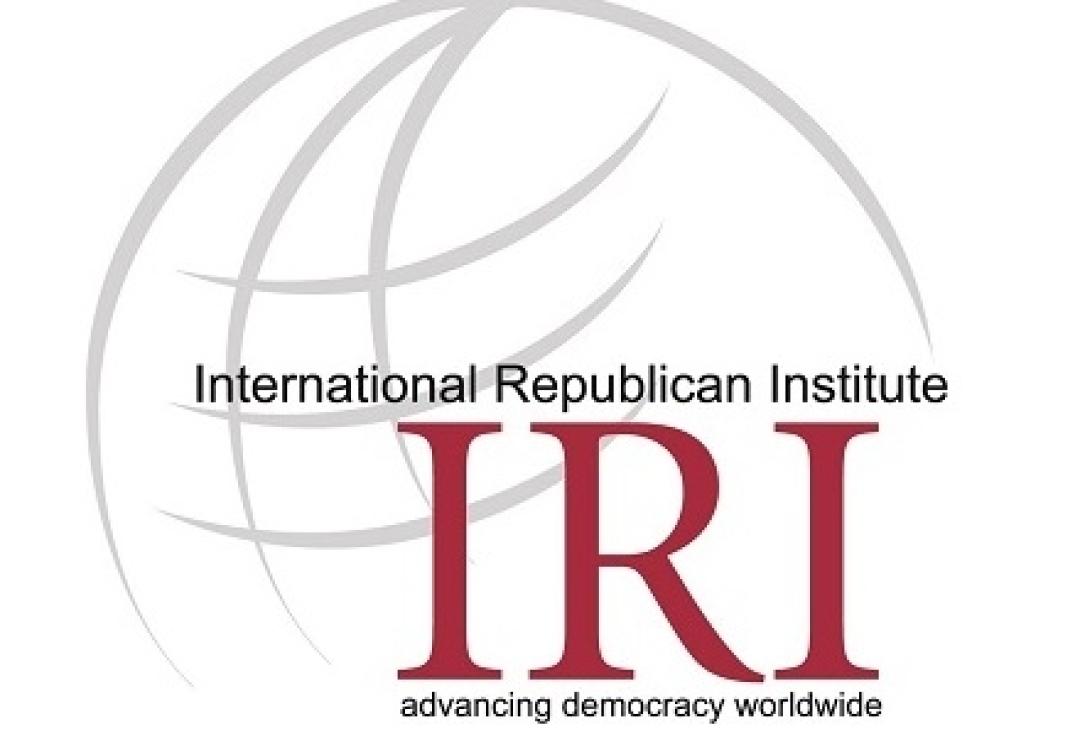
IRI releases its first national polls in Georgia after the 20 June events

On 18 November, the US-based International Republican Institute (IRI) published their research on Georgian public opinion polls conducted between 11 September and 14 October. These were the first public opinion polls conducted after the protests from 20 June (Caucasus Watch reported).
In regard to the overall situation in the country, 68% of respondents believed that the country is going in the wrong direction, whilst only 22% were convinced that it is going in the right direction. As for the most important problems Georgia is facing, unemployment (53%), cost of living/high prices (18%), poverty and loss of territories (3%) were named. The political issue which made the most gains during the past year was freedom of speech (34% of the questioned consider it to have progressed), while the economy was considered the area were the country mostly regressed (66%). As the most local challenges, unemployment (32%), access to drinking water (9%), the state of the roads (7%) and poverty (6%) and environmental issues (4%) were named.
In the field of Georgia’s international relations, 52% of respondents considered the United States to be the most important political and economic partner to Georgia, followed by the EU (50%), Ukraine (32%), Turkey (24%) and Azerbaijan (22%). Russia was perceived as the biggest foreign political threat to Georgia (83%). However, 74% of the questioned supported a dialogue with Russia. 49% of interviewees agree that a pro-western foreign policy with a dialogue of Russia is the best political course for the country.
As the most trustworthy institutions in the country, the army (86%), the church (85%) and the media (72%) were named, while the most untrustworthy institutions were the president’s office (70%), the political parties (63%) and the parliament (61%). In terms of the current governments top successes, healthcare reform (13%), infrastructure projects, no violence, education reforms and visa-free travel (all 4%) were named, while the biggest failures were unfulfilled promises (12%), devaluation of the Lari (8%), 20 June events (7%), economic crisis (6%) and “creeping borderization” (5%).
The most favourable political figures in the countries were the leader of European Georgia David Bakradze (57%), Tbilisi Mayor Kakha Kaladze (49%) and the leader of the Development Movement David Usupashvili (47%). The most unpopular political figures in the country according to the polls were President Salome Zourabichvili (70%), leader of the Girchi party Zurab Japaridze (66%), and leader of the Alliance of Patriots Irma Inashvili (59%). As for the political parties in the country, the ruling Georgian Dream is still the most popular party in the country, with 23% of the questioned regarding it as the first choice, followed by the United National Movement (UNM, 15%), European Georgia (5%), Labor Party (5%) and Alliance of Patriots (4%). European Georgia (28%), UNM (25%) and Georgian Dream (24%) were named as the most favourable coalition partners for the upcoming 2020 elections. As for the political parties’ pre-election programs, economic policies (61%), healthcare and security policy (50%) and foreign policy (20%) were named as the most influential factors for gathering votes.
On the questions related to the Georgian society, most of interviewees believed that Georgian customs and traditions (22%), patriotism (10%) and religion (10%) were the biggest values of the country. 71% believed that democracy was the best form of government for the country, with unemployment (31%), economic problems (28%) and wrong policies (15%) being the major challenges which hinder Georgia’s full democratic development. 78% of respondents supported the introduction of a proportional electoral system in the country, with only 9% opposing it. Regarding the role of civil society organizations (CSO’s), 15% believed that they had a great impact, 35% that they had some impact, 22% that they had little impact, and 10% that they had none impact on the government policies. Imedi TV was named as the most trustworthy media source in the country, being the first mention by 39% of the questioned and being named by 53% of the questioned, followed by Mtavari Akhi (18%, 26%), Rustavi 2 (13%, 27%) and TV Pirveli (6%, 18%).
As for the events from 20 June, 68% of the questioned believed that the state abused its power or used excessive force against the protesters on the event, with 20% of the questioned showing disbelief. The Georgian government (39%), everyone together (24%), the Ministry of Interior (23%), hired provocateurs (14%) and opposition parties (13%) were named as the most responsible factors for the event to occur.
See Also


Armenia Records 5.9% GDP Growth in 2024, Missing 7% Goal

Yerevan Balances Strategic Ties with Both US and Russia, Says Foreign Minister

FM Mirzoyan: Peace Deal with Azerbaijan Is Within Reach

Pashinyan and Erdogan Hold Call, Reaffirm Commitment to Ongoing Dialogue

